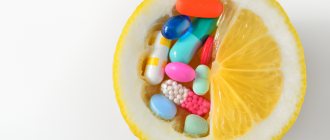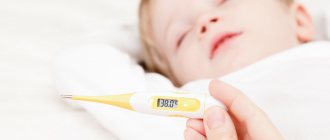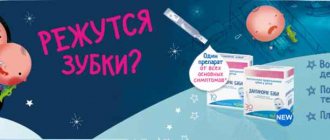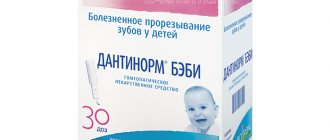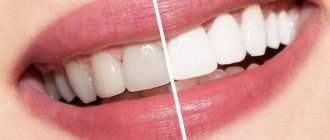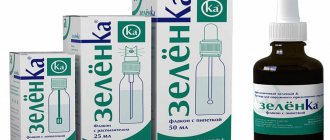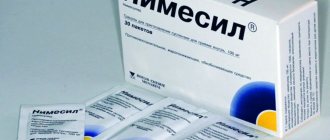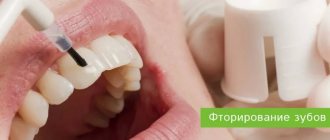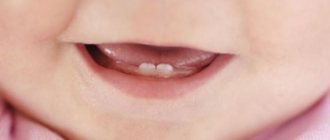What is the drug "Viburkol"?
Viburkol is a suppository that has anti-inflammatory, soothing and antipyretic effects. They are mainly used by children, but sometimes pregnant women also take them.
The composition of one candle is as follows:
- pharmaceutical camomile;
- large plantain;
- belladonna or belladonna;
- meadow lumbago;
- bittersweet nightshade;
- calcium carbonate.
All of the above components are taken in homeopathic dilution, and inert pharmacologically solid fat is used as a basis. Since the fat base can melt at a temperature similar to body temperature, it is recommended to store the drug in the refrigerator or other place, and the air temperature should not exceed +25 ° C.
The homeopathic drug Viburkol helps ease teething in the baby
Instructions for using "Viburkol"
Viburkol suppositories are used rectally. If you look at the candle more closely, you can see that it is slightly pointed at one end, and at the opposite end it has a small funnel-shaped depression. This form makes it easier to administer the drug.
We place the pad of the index finger in the recess, and with the thumb and middle finger we cover the candle in both directions. Gently spread the child’s buttocks with the other hand and in one movement quickly insert the candle into the anus forward with the pointed end. The drug must enter completely.
Sometimes the baby's buttocks are squeezed a little so that he cannot push the drug out. If everything is done correctly, then the baby will not feel any discomfort from such a procedure.
How often can Viburkol be used?
Children under six months of age are not recommended to use more than two suppositories per day, so there should be a gap of at least 12 hours between doses.
For children after 6 months, the dose can be increased, if necessary, to 4-6 suppositories per day. If the baby's body temperature is low-grade (and this is most often observed during teething), Viburkol is recommended to be used every 6 hours. At very high levels (more than 38° C), we increase the frequency of taking the medicine to 6 times a day (every 4 hours) and be sure to call a doctor.
In what cases is Viburkol indicated?
- Most often, the drug is prescribed by a pediatrician, but you can use this medicine yourself if your baby is teething:
- is capricious and restless;
- is in pain;
- cannot fall asleep on time;
- Constantly pulls hands towards the temple, cheek or ear - this may indicate the presence of an inflammatory process that radiates to the ear.
Be sure to use Viburkol if your child has a fever.
What other drugs can be used for teething.
To date, there are no drugs similar to Viburkol. But there are many alternative medicines that have proven themselves no worse:
- drugs based on paracetamol - Panadol, Cefekon, Efferalgan, etc.;
- ibuprofen-based products - Ibufen, Nurofen;
- local gels with an anesthetic effect - Dentinox, Kamistad, Dentol.
The first two groups of drugs have antipyretic, anti-inflammatory and moderate analgesic effects. Children's release forms - syrups and suppositories.
If the baby has regurgitation or vomiting when the temperature rises, it is better to use suppositories.
Gels for topical use are applied to the inflamed gum. They have an analgesic effect due to the content of lidocaine in their composition and an anti-inflammatory effect due to chamomile and extracts of other plants. But lidocaine is not advisable to use in pediatric dentistry. Since it “freezes” the gums, the result is:
- the child becomes even more excited because all this is a new sensation for him, which causes anxiety;
- as a result of such anesthesia, salivation increases, which causes additional discomfort for the baby;
That is why such gels should be used if there is no desired effect as a result of using a proven drug.
Important! If the doctor advises using the medicine 4 times a day, this means that you can, for example, give the syrup twice and administer the suppository twice. But under no circumstances should the dose be duplicated!
The most pressing problem in Russia is pharmacotherapy in pediatric practice. Today, medications are widely used that are either not officially approved for use in children (unlicensed), or are not used in accordance with the instructions for use of the drug (off label), or a large number of medications are used at the same time (polypharmacy), especially those that do not have proven effectiveness. in children. Unregulated prescriptions often account for about 10% when treating a child in an outpatient setting. More than a third of adverse drug side effects occurring in pediatrics are caused by unlicensed or off-label prescriptions [1].
Over-the-counter dispensing of such groups of drugs as non-steroidal anti-inflammatory drugs (NSAIDs) and antibiotics leads to an increase in side effects in children (data from a systematic review of RMD RM Smyth et al., 2012) [2].
The peculiarities of prescribing drugs in children are due to the different pharmacokinetics of drugs, ranging from the absorption of the active substance in the child’s gastrointestinal tract, the connection with proteins due to a different composition of protein fractions, and ending with the immaturity of the child’s excretory system [3].
Thus, unregulated pharmacotherapy is often accompanied by an increased risk of complications and can lead to prolongation of the underlying disease.
The problem of off-label prescriptions is most clearly presented in the treatment of acute respiratory diseases, spastic conditions, and pain syndromes, since to alleviate the suffering of a child, higher doses, different frequency of prescriptions, combinations with other NSAIDs not approved for use in children, and additional prescription of such drugs are often used. drugs such as antihistamines, myotropic, immunomodulatory, sedatives, on the one hand, capable of quickly and effectively stopping almost any symptom, on the other hand, blocking and inhibiting the physiological course of biologically expedient processes of self-regulation of the body.
For example, the use of NSAIDs leads to inhibition of the inflammatory process, which disrupts its physiological course and makes it difficult to fully complete it. Therefore, long-term use of NSAIDs during acute and subacute course of the disease can contribute to chronicity of the process, as well as the development of various complications.
Today, naturopathic treatment is becoming increasingly popular in the world. In European countries, especially Germany, homeopathic remedies have been officially prescribed by traditional practitioners for more than 80 years [4].
The drug Viburkol (Biologische Heilmittel Heel GmbH, Heel) is widely used for diseases in children by both foreign and domestic doctors [5, 6, 8–19, 20]. Viburkol belongs to antihomotoxic drugs, the action of which is based on the complementary principle and stimulation of the body’s own forces. Antihomotoxic drugs are made from natural products in minimal dosages, they are prescribed on the basis of a clinical diagnosis, the complex composition allows them to be used according to indications, making the drugs available for use by doctors who do not have special homeopathic training.
To reduce the use of high doses of NSAIDs and the prescription of several drugs with questionable effectiveness, it is possible to use low-dose complex antihomotoxic drugs in children. For example, the drug Viburkol has certain advantages: firstly, it provides a quick and pronounced effect comparable to NSAIDs; secondly, it has minimal side effects; thirdly, it has a convenient registered dosage form for children and is used from the age of one year; compatible with other complex biological and allopathic drugs, when used together with which their side effects are minimized. At the same time, Viburcol has a favorable safety and tolerability profile [5, 6, 7–16].
Currently, in Russia, the drug Viburkol is registered in the form of a pediatric form “Homeopathic rectal suppositories” (see table). It consists of six components (five plant and one mineral), which, thanks to a special stepwise homeopathic manufacturing technology, are contained in the preparation in ultra-low doses. It is thanks to its composition that Viburkol is well tolerated by children and, unlike traditional allopathic drugs, helps restore self-regulation processes in the body, activate detoxification processes and normalize impaired functions [5, 6, 7–19]. Chamomilla recutita (officinalis chamomile), which is part of the drug, increases the threshold for pain perception and restores autonomic regulation in the body. It is used for nervous excitement in children due to fever, teething, and intestinal colic. Chamomile is effective for pain in children associated with hypersensitivity and physiological immaturity of the nervous system. Belladonna (belladonna) enhances the effect of Chamomilla recutita and is a basic component for the treatment of pain in children. Dulcamara (bittersweet nightshade) provides a tranquilizing effect. Plantago major (large plantain) has a sedative effect. Pulsatilla (anemone) normalizes hormonal balance and is also one of the most effective homeopathic ingredients for pain relief. Calcium carbonicum has a pronounced analgesic effect [5–7].
Thanks to these components, Viburkol has a complex effect: analgesic, antispasmodic, sedative, anti-inflammatory. A special feature of the drug is that its use in diseases with fever is not accompanied by a sharp decrease in body temperature, the drug does not affect the metabolism of arachidonic acid. This is due to the fact that its complex action is based on the activation of the body’s defense mechanisms and contributes to a biologically expedient reduction in elevated body temperature, maintaining it at an optimal level that preserves the effective functioning of the immune system: interferon synthesis, activation of phagocytosis [6–8].
Thanks to this complex action, the indications for use of Viburkol cover a wide range of diseases and conditions in children. These are inflammatory processes with pain during teething, otitis [5], infectious diseases (acute respiratory viral infections - ARVI, influenza), acute diseases of the upper respiratory tract, childhood infectious diseases (chicken pox, measles, rubella) accompanied by fever [5, 12–15], spastic conditions (intestinal colic) [15], nervous agitation, anxiety against the background of elevated body temperature [6, 10, 15, 16, 18, 20], as well as prevention of convulsive readiness against the background of increased body temperature.
However, it must be remembered that in Russia this drug is registered only “as part of complex therapy (as an antipyretic and anti-inflammatory agent) in the treatment of respiratory diseases in children, as well as for the relief of clinical manifestations during the eruption of baby teeth” [21].
Dosage regimen recommended by the instructions: for ARVI and painful symptoms of eruption of baby teeth, children under 6 months, 1 suppository 2 times a day, children over 6 months with a body temperature above 37.5 ° C, 1 suppository 4 times a day, with a body temperature above 38°C 1 suppository up to 6 times a day. When body temperature normalizes, take 1 suppository 1–2 times a day for another 3–4 days [21].
The effectiveness and good tolerability of Viburkol for the above diseases and conditions have been studied and confirmed by a number of scientific and clinical studies since the 1980s. The results of a study of the drug Viburkol were first published in 1986. Treatment was carried out in a group of 44 children under the age of 2 years who suffered from an uncomplicated viral upper respiratory tract infection.
The study noted the effectiveness of the therapy; no side effects were observed [22].
A study of Viburkol suppositories was also conducted in 3009 children under 1 year of age who suffered from acute respiratory diseases (2173 children), restlessness due to fever (341 children), abdominal cramps (127 children), pain (291 children) and other symptoms (77 children). During treatment, the drug was prescribed in the form of suppositories 2-3 times a day to 71.3% of patients. With the therapy, recovery occurred in less than a week in 56.5% of patients. In the cohort of sick children, 82.7% of patients rated the effect as “very good” or “good.” Only 4.6% of children showed no improvement, and 0.5% experienced deterioration. Of the side effects, 9 cases of diarrhea were described, 2 patients noted pain when administering the suppository [23].
A study of Viburkol was also conducted for general anxiety against the background of fever, acute respiratory diseases and teething in 30 children. A positive effect was achieved in 25 children. No side effects were recorded [24].
German specialists B. Müller-Krampe, R. Gottwald, M. Weiser in 2002 conducted a multicenter prospective controlled cohort study in which they compared the effectiveness and tolerability of Viburkol and paracetamol in the symptomatic treatment of acute febrile conditions in children.
The study included 767 patients; the main group (361) took Viburkol, the control group (406) took paracetamol. The danger of using paracetamol is associated with the narrow range between therapeutic and toxic doses. Due to the over-the-counter status of paracetamol, there is a high risk of overdose during self-medication, which can cause severe side effects. Therefore, Viburkol was chosen for comparison as a drug that helps eliminate specific symptoms without pronounced toxic effects. The criteria for effectiveness and tolerability were body temperature, feeling sick, severity of fever, severity of clinical symptoms (spasms caused by infection and temperature, general anxiety and sleep disturbance, screaming/crying, difficulty eating/drinking, time of improvement of feverish symptoms), overall treatment outcome, side effects and overall assessment of tolerability. As a result of treatment, a marked improvement in clinical parameters was observed in both groups. The following conclusions were drawn: Viburkol is a reliable, effective and safe drug for the symptomatic treatment of diseases accompanied by fever in children. At the same time, it has a therapeutic potential comparable to paracetamol and its use does not pose the risk of developing side effects characteristic of paracetamol [15].
In 2005, Belgian clinicians led by M. Derasse compared the effectiveness and tolerability of the drug Viburcol with paracetamol in febrile conditions [16].
The study involved 208 children (under 11 years of age) from 38 medical centers in Belgium. The main group (107) of patients took Viburcol for rhinitis, otitis, bronchitis and tonsillitis [16]. It was concluded that Viburkol is well tolerated and is not inferior in effectiveness to paracetamol. Doctors and parents were more likely to rate Viburcol "excellent" (93%) than acetaminophen (80%). The study showed that for clinicians and parents concerned about the possible risks of treatment, Viburkol is an effective, well-tolerated alternative to paracetamol in the symptomatic treatment of children with acute infection accompanied by fever [16].
In conclusion, I would like to note that Viburkol is an effective registered drug that has undergone clinical trials not only in Russia, but also abroad, with a well-studied tolerability and safety profile. The use of Viburkol in addition to standard therapy for acute respiratory infections accompanied by fever, pain associated with teething or respiratory infection leads to a reduction in the risk of developing side effects as a result of taking NSAIDs, reduces the number of drugs used simultaneously, and reduces the likelihood of using off-label drugs.
Contraindications to the use of homeopathic suppositories and their side effects
To date, no side effects of Viburkol suppositories have been described. The only thing that may occur is an allergic reaction to one of the components of the drug.
For the same reason, it is better to refrain from using it if there is a suspicion that the child has hypersensitivity to the active substances that are part of the drug or to its base.
It is not recommended to use Viburkol for a long time at elevated temperatures. Often, malaise may occur not due to teething, but to infection, and in this case, treatment should be prescribed by a pediatrician. But you can put a candle in order to alleviate the child’s condition before being examined by a doctor.
Analogs
Many parents, upon learning the price of the drug, want to purchase a cheaper substitute. But pharmacists do not yet offer an analogue of Viburkol with the same composition. But there are plenty of other remedies in pharmacies that can also be used to alleviate a child’s condition during teething. These include:
- Preparations based on paracetamol to reduce fever and eliminate pain - Efferalgan, Tsefekon, Panadol, etc.
- Products with a similar effect, but containing another active substance - ibuprofen. This is Nurofen or Ibufen.
- As well as various pain-relieving gels that have a local anesthetic effect - Dentinox, Kamistad, etc.
It is worth noting that at high temperatures it is advisable to use not suppositories, but some drugs in the form of syrups. Local anesthetics, produced in the form of gels, have an anti-inflammatory effect and, due to the lidocaine in the composition, quickly relieve pain. True, the result may be restless behavior of the child due to new “cooling” sensations, as well as increased salivation.
Category Children, Medicines / drugs Published by Mister stomatolog
How quickly will Viburkol act?
It all depends on the desired effect. If the baby cries or is capricious, then a slight calming effect can be achieved 30-40 minutes after taking the drug. The child will calm down and may even fall asleep if all this happened during the natural sleep cycle.
If you need to relieve pain and relieve inflammation, you need to take the drug regularly in order to create a cumulative effect at least twice a day.
To normalize body temperature with the help of Viburkol suppositories, it is hardly possible to do without the use of ibuprofen or paracetamol. The active substances are completely absorbed from the suppository within 10-20 minutes from the moment of administration.
Thus, the use of the homeopathic drug Viburkol for teething in children is completely justified and advisable. But if the body temperature is very high and does not decrease, you should definitely consult a doctor and rule out the possibility of developing other diseases or use stronger medications.
Add a review (comment)
By submitting this form you accept the privacy policy.
Indications and contraindications
Thanks to the composition described above, Viburkol has a complex effect during teething for children:
- relieves local pain;
- removes toxic substances and reduces their negative impact on the body;
- reduces spasms of smooth muscles;
- normalizes body temperature;
- eliminates inflammatory processes.
How quickly does it work? As the suppositories dissolve and are absorbed into the intestinal walls, they gradually reduce body temperature and eliminate pain. The calming effect occurs half an hour after administration of the suppository, and pain relief and relief from the inflammatory process is achieved only cumulatively, that is, from regular use of the product twice a day.
It should be noted that the action of Viburkol is effective without fever or with low temperatures. But if the readings on the thermometer reach 38⁰ or more, then it is advisable to use other medications in the form of syrups or tablets.
The manufacturer notes that there are no negative consequences from taking Viburkol and it does not cause any side effects. And yet, in some cases, a child may experience an allergic reaction in the form of a rash to any active component of the product.
